Sommaire
Tribute to Samuel Paty and Dominique Bernard: can a commemoration be a political event?
Every year since the tragic murder of Samuel Paty on 16 October 2020, France has paid tribute to the memory of this teacher, a symbol of freedom of expression and republican values. Three years on, the commemoration of his death continues to generate debate and tributes, particularly on social networks and in the media. This year, the emotion is heightened by the tribute paid to Dominique Bernard, the teacher stabbed to death in Arras. But how is this expressed and what does it allow us to discuss?
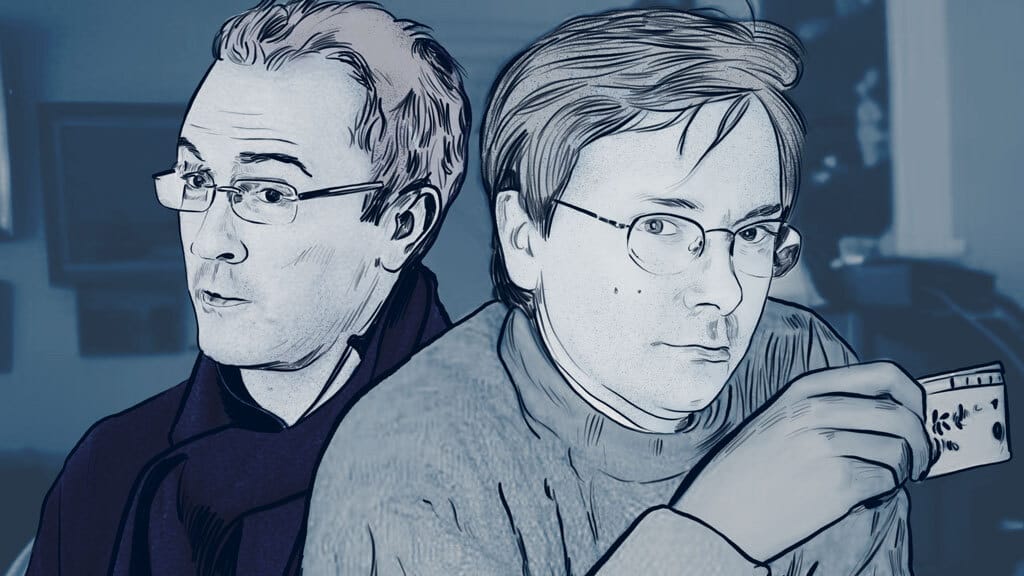
Summary:
1. Seasonality of commemorations: The anniversaries of tragic events, such as that of Samuel Paty and Dominique Bernard, generate peaks of political and media activity. These are strategic moments for public and private players wishing to position themselves in debates. By forecasting these peaks, we can better anticipate opportunities for media or political intervention.
2. Reactivation of political debates: These commemorations give rise to questions to the government, particularly from groups such as Rassemblement National (RN) and Renaissance. They provide an opportunity to reactivate issues or measures previously decided or to point the finger at breaches of secularism. For all that, education players are not really emerging.
3. Fragmentation of themes: Analysis of the publications shows a polarisation of conversations. On the one hand, the government and secular actors focus on the memorial aspect and secularism, while the far right exploits the theme to talk about Islamism and immigration.
In short, beyond its memorial role, commemoration can help to put a recurring issue on the agenda.
A recurring theme but commemorations that create political peaks and conversations
The seasonality of anniversaries is important, with tributes in the form of birthdays. We can see that last year was already a peak year, and that the situation can recur sporadically throughout the year.
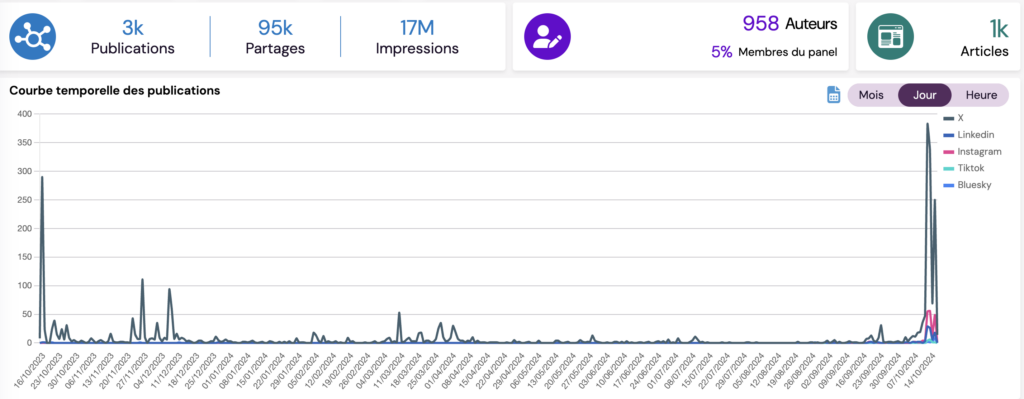
This also means that questions to the government are starting up again. Most of these questions come from the RN and Renaissance.
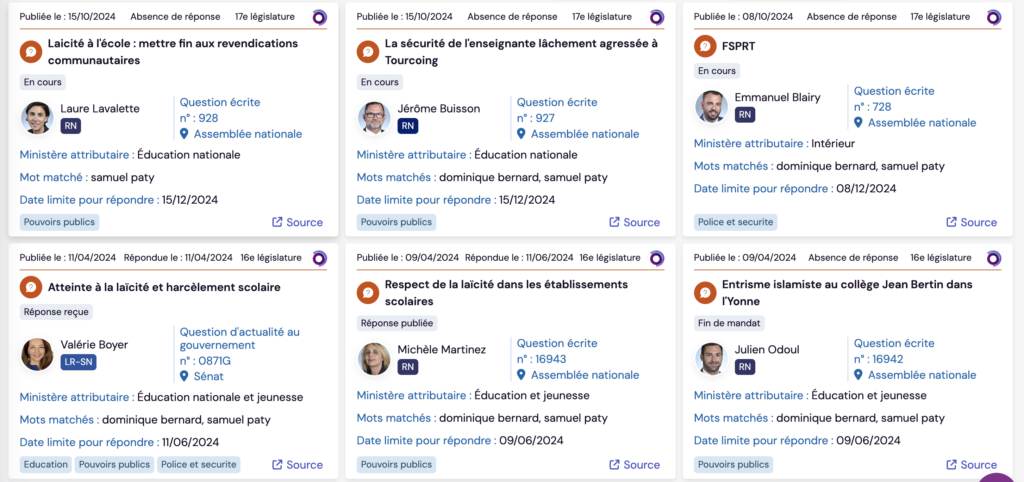
However, on social networks, the tribute is politically divided in terms of share of voice, even though there is relatively little overall activity and volume.
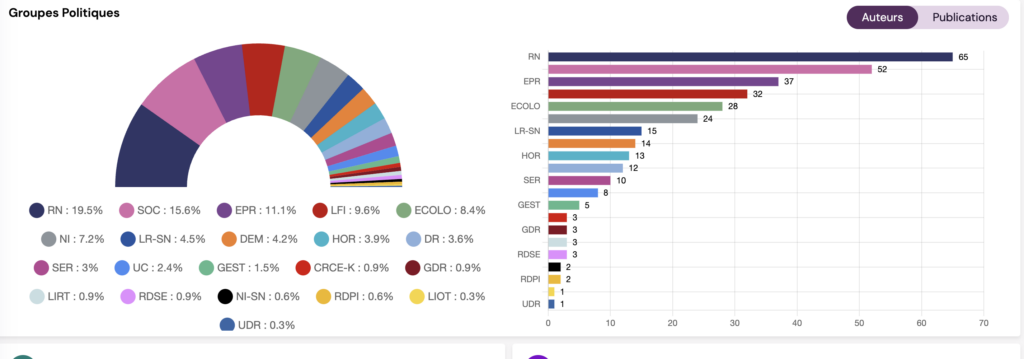
An analysis of the publications reveals a number of different themes:
- The ceremony was held mainly by the media and the government
- The memory aspect of things
- Political recuperation on the subject of Islamism and immigration
- The testimony of Samuel Paty's sister
The far right against Islamism and the government around secularism
The conversations are split in two: (the graph shows the interactions in mentions or retweets between the accounts, the bigger the account the more engagement it has received and a colour indicates a community).
- At the top of the graph are the government, secularists and education.
- At the bottom of the graph, we see the Rassemblement National's political recovery.
RealMarcel1's tweet, which we see as a totally isolated account, is a tweet that doesn't address the issue by talking about Sifaoui: (https://x.com/CharlesFyda/status/1846477869276405796 ) "This crook stole €350,000 from the French on the grave of Samuel Paty, with the complicity of Marlène Schiappa."
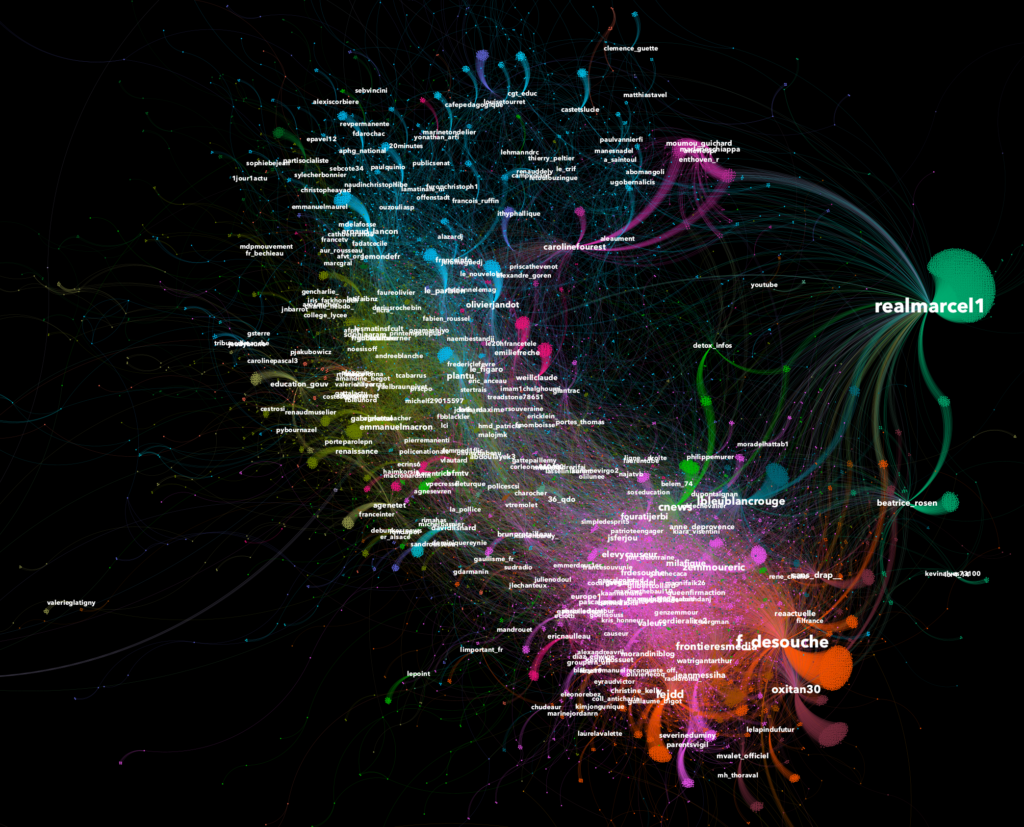
This can also be seen in communities: (here we see how players follow each other)
- In orange, the RN community
- In green, the Reconquête community and right-wing bloggers/media
- In pink, the government and secular currents
- In blue, the LFI/Popular Front community
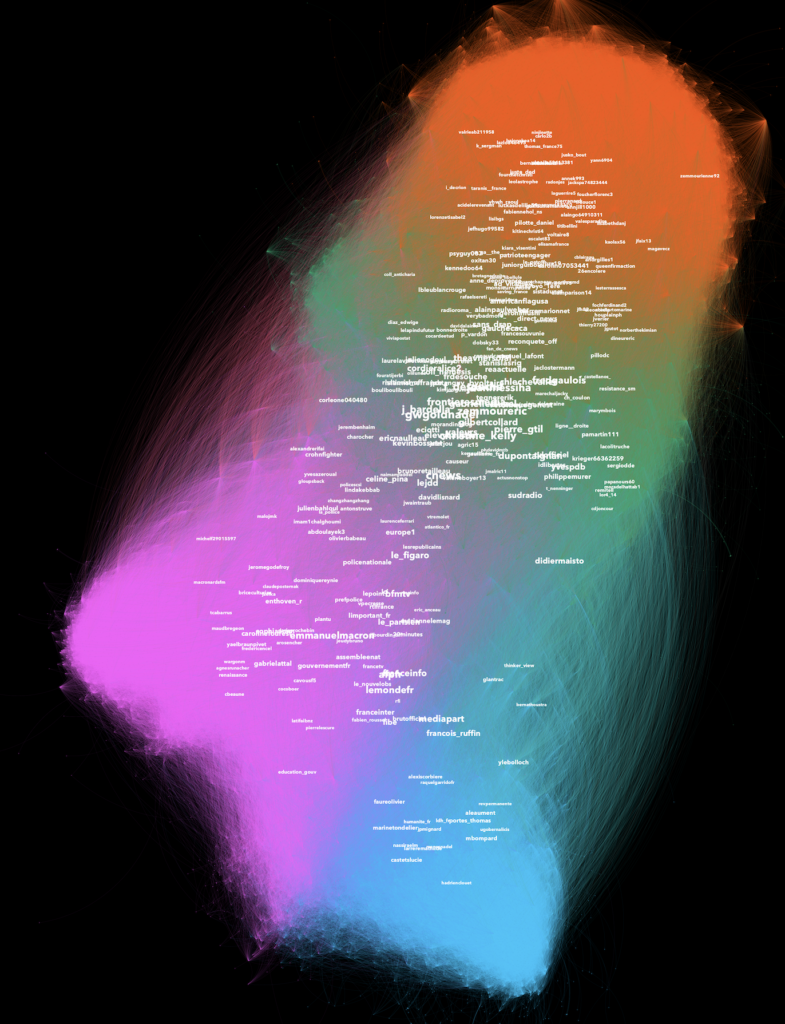
This just goes to show that a tribute can help to put an issue back on the political and media agenda, where discussions about Islamism, secularism and "no waves" become political issues. (political questions, media articles, speeches, public appearances and testimonials)



